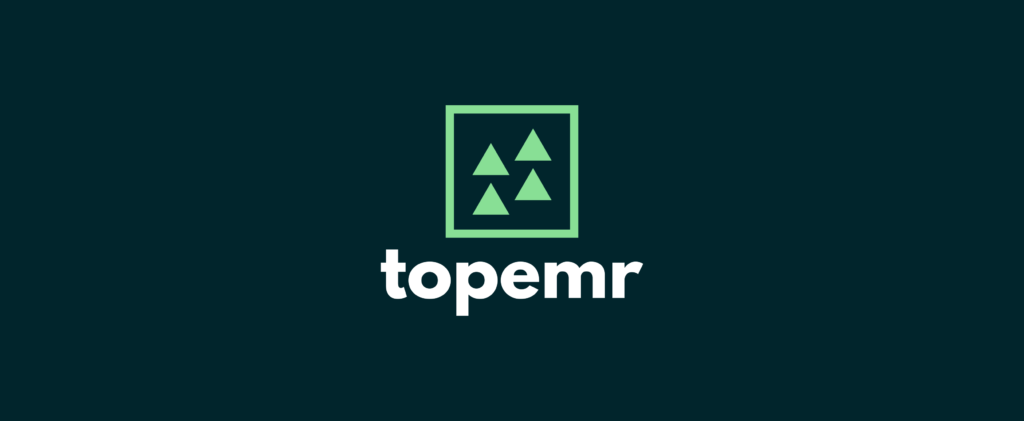Dubai’s Scaling Challenge
In Dubai, dialysis demand is climbing due to an ageing population, increased lifestyle-related chronic illnesses, and inbound medical tourism. Expanding from one to multiple dialysis units sounds promising, but it’s more than installing extra chairs and hiring more nurses.
The Dubai Health Authority (DHA) mandates NABIDH integration and rigorous compliance checks, while patients expect the same high level of care regardless of which branch they attend. Without a clear operational blueprint, scaling can lead to workflow drift, inconsistent clinical practices, billing discrepancies, and reputational damage.
TopEMR.ae’s insights combined with Clinicea’s scaling framework outline exactly how to grow without chaos.
1. Standardize Clinical Protocols Across All Sites
Why it matters in Dubai:
Local compliance demands strict protocol adherence. A missing anticoagulation checklist or inconsistent vitals recording across sites can trigger DHA audit failures.
How to execute:
- Create standard dialysis flowsheets—covering vascular access checks, vitals intervals, anticoagulation protocols—inside Clinicea.
- Push protocols chain-wide via the Clinicea Chain Dashboard so every site follows the same standards.
- Embed checklists that block incomplete submissions, ensuring 100% protocol adherence.
Impact:
Dubai dialysis chains can deliver identical care at every site, passing DHA audits with minimal remediation work.
2. Eliminate Data Siloes with a Unified EMR
The Dubai context:
Fragmented records across locations cause duplicated lab orders, missed follow-ups, and incorrect insurance claims.
Execution steps:
- Migrate all patient records into Clinicea’s NABIDH-compliant EMR.
- Use 1-click Medical Summaries to get a consolidated patient view.
- Integrate labs, prescriptions, and treatment history so every clinician sees one unified record.
Impact:
Patients receive continuous care whether they visit Deira, Jumeirah, or a new satellite unit—while clinics avoid costly rework.
3. Real-Time Scheduling & Capacity Management
Why it matters in Dubai:
With high competition and limited machine capacity, overbooking creates bottlenecks and patient dissatisfaction.
Best practices:
- Set machine-based session slots in Clinicea for each branch.
- Deploy SMS reminders and automated no-show workflows via CallBox integration.
- Monitor live session status across all branches from HQ.
Impact:
You can optimise throughput, reduce idle capacity, and prevent overworked staff—without sacrificing patient experience.
4. Inventory and Consumables Control
The Dubai scenario:
Stockouts can disrupt care and breach contractual SLAs with insurance partners.
Operational model:
- Use barcode-enabled inventory management inside Clinicea.
- Auto-deduct supplies (dialyzers, tubing, heparin) at the point of care.
- Trigger automated reorders and manage inter-branch stock transfers.
Impact:
Predictable supply chain management—ensuring no patient session is delayed for want of consumables.
5. Consistent Billing, Insurance, and Audit Compliance
Why this is critical:
Insurance audits are frequent in Dubai. Incorrect codes or inconsistent packages can result in rejected claims or fines.
Implementation via Clinicea:
- Enforce standard ICD-10, HCPCS, and RxNorm coding across sites.
- Standardize package templates for dialysis sessions, consumables, and medications.
- Use Clinicea’s pre-submission audit tool to catch claim errors.
Impact:
Faster reimbursements, fewer disputes, and a cleaner audit trail.
6. Centralized Analytics to Drive Growth
The Dubai growth advantage:
With NABIDH data flowing in real time, central analytics allow you to spot inefficiencies fast.
Execution:
- Track KPIs: seat utilization, throughput, cancellations, inventory variance, staff productivity.
- Schedule weekly operational reviews with all unit managers.
- Use dashboards to make data-backed staffing and investment decisions.
Impact:
You scale with discipline, not guesswork—avoiding the trap of opening new units that underperform.
7. Telehealth and Patient Engagement at Scale
Why Dubai clinics should care:
Patients may be spread across the emirate or the wider UAE. Virtual care reduces missed visits and builds loyalty.
Clinicea tools:
- Embedded telehealth consultations.
- Digital e-consents, e-prescriptions, and SMS feedback requests at discharge.
- Central review of patient satisfaction scores.
Impact:
A seamless patient experience—whether they step into a clinic or consult remotely.
8. Layering NABIDH Compliance Into Expansion
Scaling in Dubai means meeting the NABIDH mandate at every new location from day one.
TopEMR.ae highlights the pitfalls of retrofitting compliance—delays, failed audits, and costly retraining.
Clinicea’s approach:
- Build NABIDH messaging and HL7/FHIR data mapping into each new site’s EMR from launch.
- Run sandbox testing before the first patient session.
- Automate NABIDH reporting so compliance doesn’t depend on manual uploads.
Impact:
You expand without pausing operations for compliance fixes later.
9. Real-World Results
Chains like The Hans Foundation, Kidney Solutions, and African Healthcare Network have expanded in diverse geographies using Clinicea’s chain-level controls. In Dubai, similar operators have reported:
- 18% higher throughput without increasing staff headcount.
- Zero NABIDH compliance penalties post-expansion.
- Reduction in billing disputes by over 40% within the first year.
10. A 90-Day Dubai Expansion Blueprint
Phase 1 – Foundation (Days 1–30)
- Map protocols to DHA and NABIDH standards.
- Configure EMR templates and coding.
- Train HQ and branch leads.
Phase 2 – Controlled Rollout (Days 31–60)
- Launch scheduling, inventory, and billing controls.
- Integrate telehealth for patient engagement.
- Monitor first KPIs.
Phase 3 – Scale with Confidence (Days 61–90)
- Open second and third sites with pre-tested workflows.
- Begin chain-wide analytics reviews.
- Prepare next phase funding using performance data.
Final Word
Scaling from one to five dialysis units in Dubai is less about adding chairs and more about engineering systems that ensure consistency, compliance, and care quality. Clinicea’s integrated EMR, NABIDH-compliant workflows, inventory controls, and analytics make expansion predictable rather than risky.
With the right platform, you don’t just scale capacity—you scale excellence.
Dialysis clinics that scale effectively in Dubai strengthen both operational control and regulatory compliance by using Clinicea EMR in alignment with NABIDH Connected compliance, ensuring growth without sacrificing quality or compliance.
Featured LinkedIn Article:
How to Scale from 1 to 5 Dialysis Units Without Adding Chaos – https://lnkd.in/grdZrq_H


Leave a Reply